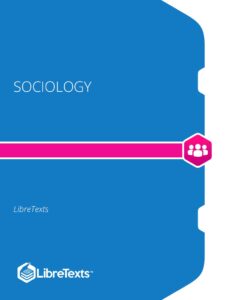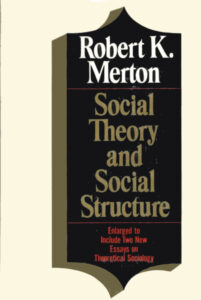Above all, you have learned the sociological perspective: the idea that our social backgrounds, broadly defined, profoundly influence our behavior, attitudes, and life chances. We discussed many examples of this in the early chapters, when we examined the effects of social processes such as culture, socialization, and roles and group membership; in the middle chapters, when we examined the consequences of inequalities based on social class, race and ethnicity, gender and sexuality, and age; and in the final chapters, when we examined the importance of social institutions such as the family, education, religion, and medicine. In all of these respects, you have learned that people are not just individuals but rather are social beings and also that we can thus fully understand any one individual only by appreciating the influence of the person’s social background.
Because of all this learning, you now know more about yourself than you did before you took the course for which you read this book. You know that you are who you are in part because of your gender, social class, race and ethnicity, geographical location, and many other aspects of your social background and also because of socialization by your parents and by friends, teachers, and other “agents of socialization” throughout your life.
You have also learned the importance of social inequality. More than perhaps any other academic discipline, sociology emphasizes the importance of social inequality for understanding both society and the individual. American society and, indeed, the world itself cannot be adequately understood without first understanding the importance of inequality based on social class, race and ethnicity, gender and sexuality, and age.
Next, you have learned about the nature and importance of social institutions. The family, economy, and polity are all essential parts of the fabric of social life, as are education, religion, and medicine. Because all of these institutions affect our behavior, attitudes, and life chances, they have long been, and will continue to be, sources of significant social controversies.
Finally, you have learned about sociology and social change. Hearkening back to the roots of U.S. sociology in social reform, you have read throughout this book about the relevance of sociological insights for attempts to benefit society. This relevance derives from the sociological imagination as conceived by C. Wright Mills. As Chapter 1 discussed, the sociological imagination involves the recognition that “private troubles,” as Mills called them, are rooted in the social structure, and especially in social inequality, and are thus better understood as “public issues.”
Mills considered this type of recognition important for two related reasons. First, efforts to benefit society that neglect this recognition—that is, that neglect the structural sources of private troubles and public issues—will ultimately prove ineffective. Second, this type of recognition enables us to better understand our own experiences and life chances as we become aware of the social forces affecting our lives and those of people in similar circumstances. This awareness and self-knowledge empower us to become more effective agents of social change in our immediate social environments and also in the larger society.
If sociological insights help to guide social change, the history of social reform in the United States also shows that social change most often happens when Americans unite in small groups or larger social movements to change some aspect of society. Chapter 14 discussed important features of social movements, including their origins and impact. As that discussion highlighted, many of the rights and freedoms Americans now enjoy were won by social movements struggling against great odds. Here an often cited comment by anthropologist Margaret Mead is worth remembering: “Never doubt that a small group of thoughtful, committed citizens can change the world. Indeed, it is the only thing that ever has.”




